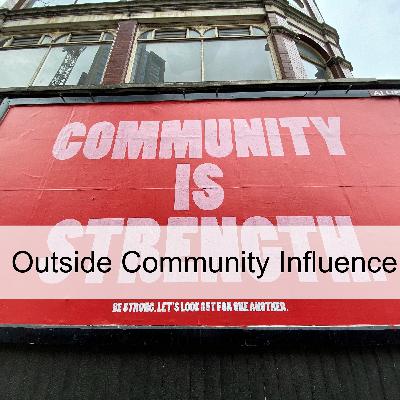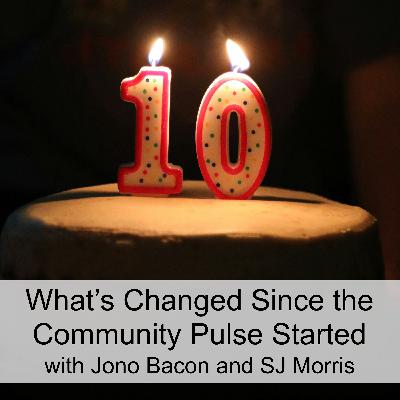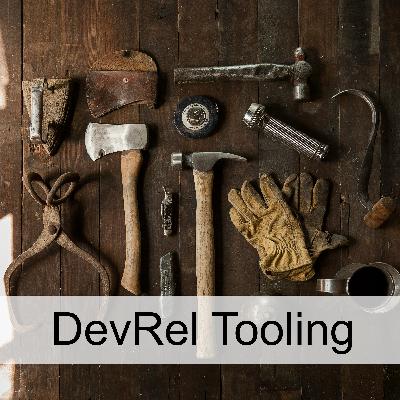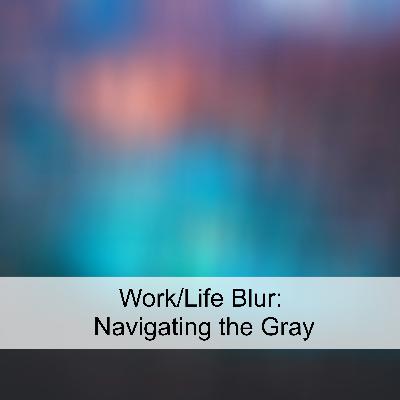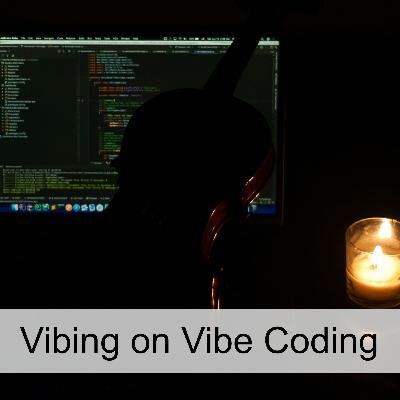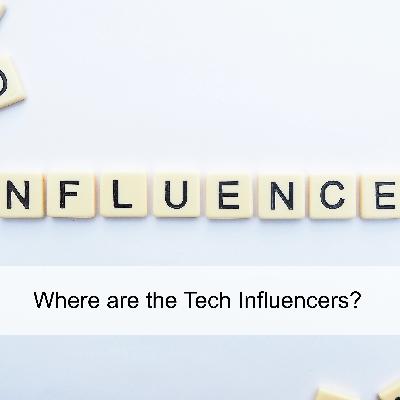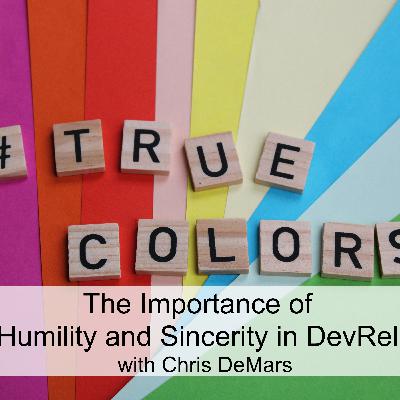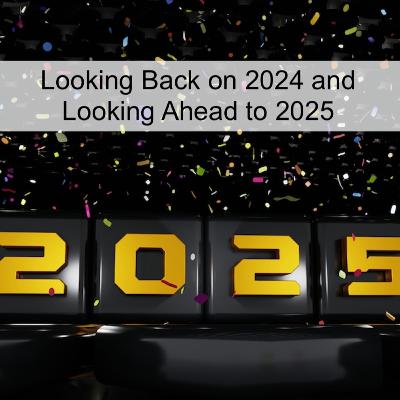The DevRel Foundation (Ep 93)
Description
In this episode, Wesley, PJ, and Jason take the opportunity to talk about a new phenomenon - The DevRel Foundation from the Linux Foundation. Learn how folks have gotten involved, what the Foundation intends to do, and how you can share your voice.
Topics Discussed:
Introduction to the DevRel Foundation:
The episode explores the new DevRel Foundation, an initiative under the Linux Foundation, created to address challenges in Developer Relations (DevRel).
Wesley Faulkner introduces the foundation, noting that its purpose is to be a nonpartisan hub for discussions about DevRel and to provide resources for defining the profession and its practices.
Foundational Goals:
The DevRel Foundation aims to address key challenges within DevRel, including defining the role, measuring its impact, and rolling out successful DevRel programs. It seeks to aggregate existing knowledge and create a space for new insights.
Wesley discusses his role in the steering committee and mentions the ongoing process of recruiting champions for various topics within DevRel to drive these discussions forward.
Open Participation and Community Engagement:
The foundation is described as a participative effort, where everyone from managers to community members can contribute. This is highlighted as an important distinction from more passive feedback mechanisms (like town halls).
Wesley outlines the process, emphasizing that the foundation is open to diverse perspectives, and all contributions will be available for collaboration through platforms like GitHub and Discord.
Challenges of Defining DevRel:
A major challenge discussed is the diversity of how DevRel is implemented across different organizations (e.g., startups, enterprises, nonprofits). Wesley talks about the need for an inclusive approach that doesn’t exclude any perspectives while ensuring practical outcomes.
Jason Hand asks about how the foundation plans to handle these varied implementations, suggesting that a “one-size-fits-all” approach may not work.
The Role of the Linux Foundation:
The Linux Foundation’s role is explained as crucial in providing structure, governance, and logistical support for the foundation. The Linux Foundation's history with supporting open-source projects and fostering community-driven initiatives is seen as a key advantage.
Real-World Impact and Job Descriptions:
Jason Hand discusses the problem of inconsistent DevRel job descriptions in the industry, which often blur the lines between roles like developer advocate, customer success, and sales engineering. The foundation’s work could help standardize expectations for DevRel roles across organizations.
The episode touches on how a clearer definition of DevRel could assist job seekers and hiring managers in aligning roles more effectively.
Future of the DevRel Foundation:
The foundation is still in its early stages, and Wesley emphasizes that while there’s hope for the project, it will take time to make significant progress. They encourage participation in calls, Discord, and GitHub to stay updated and contribute.
Key Takeaways:
- The DevRel Foundation seeks to unify and provide structure to the diverse, evolving field of Developer Relations.
Inclusive participation is at the core of the foundation's mission, aiming to gather input from all sectors of the community. - The foundation is driven by volunteer work and community passion, with the support of the Linux Foundation's structure and resources.
- GitHub and Discord are key platforms for collaboration, ensuring that community voices are heard and that contributions are open for review and iteration.
- The foundation’s work will eventually help provide clarity in DevRel role definitions, benefiting both organizations and professionals in the field.
Action Items:
- Join the DevRel Foundation: Individuals can join calls, participate in discussions, or contribute to the work via GitHub and Discord.
- Become a Champion: The foundation is actively seeking managers to lead specific topics within DevRel.
- Stay Informed: Engage with the monthly updates and open calls to follow the foundation’s progress.
Key Words and Themes:
DevRel Foundation
Developer Relations (DevRel)
Linux Foundation
Open Participation
Inclusive Governance
Community-Driven Initiatives
Job Descriptions in DevRel
GitHub and Discord Collaboration
Nonprofit Organization
Volunteer-Driven
Transcript
[00:00:00 ] PJ Haggerty: Hey everybody. And welcome to another episode of Community Pulse. We're super excited to have you.
[00:00:04 ] PJ Haggerty: This week we decided we would take a look at a new phenomenon, the DevRel Foundation, the Developer Relations Foundation from our friends at the Linux Foundation.
[00:00:12 ] PJ Haggerty: Some of you are probably already aware of it. Some of you are probably in the discord chat. Some people might not know about it at all. So we want to take this opportunity to share some information about it and see what we could find out and how we felt about it. So with that, I am joined by, of course, Jason Hand and Wesley Faulkner. Wesley, you've been doing a lot of work with the DevRel foundation as far as like looking at, working models and how people can actually get things done within the foundation.
[00:00:37 ] PJ Haggerty: So do you want to kick us off and give us a description of what's going on?
[00:00:41 ] Wesley Faulkner: Yes. Let me lay a little bit of the groundwork to understand my involvement and how. So I'm part of the steering committee. There's five of us in total. And I am the newest member of that five person steering committee.
[00:00:55 ] Wesley Faulkner: I've been part of the DevRel foundation since June of this year. [00:01:00 ] And the foundations, the start of it had, I think, started way before that even before the beginning of the year. And the involvement with the Linux foundation happens like I think in around the February timeframe. And so the thought is that there are Certain types of challenges that are unique to people in dev rel defining what we do is one of them that I think is something that people are familiar with, but others that have been lingering around about how do you measure dev rel and like adequately, like, how do you plan for the future and how do you roll out a developer relations program?
[00:01:35 ] Wesley Faulkner: Those are like the broad strokes of it. So the thought of the Dev Rel foundation is to be a nonpartisan home for these types of discussions. And we are currently set up as the steering committee, as people who are trying to facilitate those conversations, give structure and processing of what timeline we should have these conversations and be helped, like [00:02:00 ] with the being a home to people to find this, Information once we have it all created and to be a repository for a lot of existing knowledge, but also allow the connection tissue to create new knowledge that is not there right now.
[00:02:16 ] Wesley Faulkner: So that's like the whole arc of it. Depending on when you're listening to this podcast, we are currently enrolling people to take on and champion these specific areas of topics. Here are the lists that we've aggregated from the community of the challenges.
[00:02:33 ] Wesley Faulkner: And we're looking for managers to say I want to champion that and run it to ground to make sure that we actually have things defined to help us all as dev or all practitioners.
[00:02:43 ] PJ Haggerty: And I want to zero in because I think that some people I was in the initial meeting kickoff thing that happened back in June and there was a concern and it was oh, this is a town hall, not really a feedback thing, but more of a town hall where we'll come and tell you what we think is [00:03:00 ] good and you can come and tell us if you don't think it's good.
[00:03:03 ] PJ Haggerty: But what it really is is a participative activity. Not everybody wants to, and that's okay. But the idea is really behind let's put together a compendium of knowledge about what we do and put that so that when people reference it, they can easily say, this is the way it works.
[00:03:22 ] PJ Haggerty: It's a constantly moving organic body. It's similar to software. There is nothing done on this. Would that, do you think that's accurate? Great.
[00:03:31 ] Wesley Faulkner: Yeah, I think that initially I was on that initial feedback preview call as well. And that session, I think, raised a lot of awareness about how developed the thought was of where things were going to go and how open to input.
[00:03:47 ] Wesley Faulkner: The foundation was to the community and letting the community shape the direction and the focus of the foundation. And I think to its credit, the foundation has taken a lot of that into heart. [00:04:00 ] And I think that's when I joined actually because of that call or after that call. A lot of the work that I've done, at least on the initial side, was finding a way to make sure that the community's voice is heard.
[00:04:12 ] Wesley Faulkner: And then once we get all of this feedback, how do we actually act on it? Because it feels like if you t


